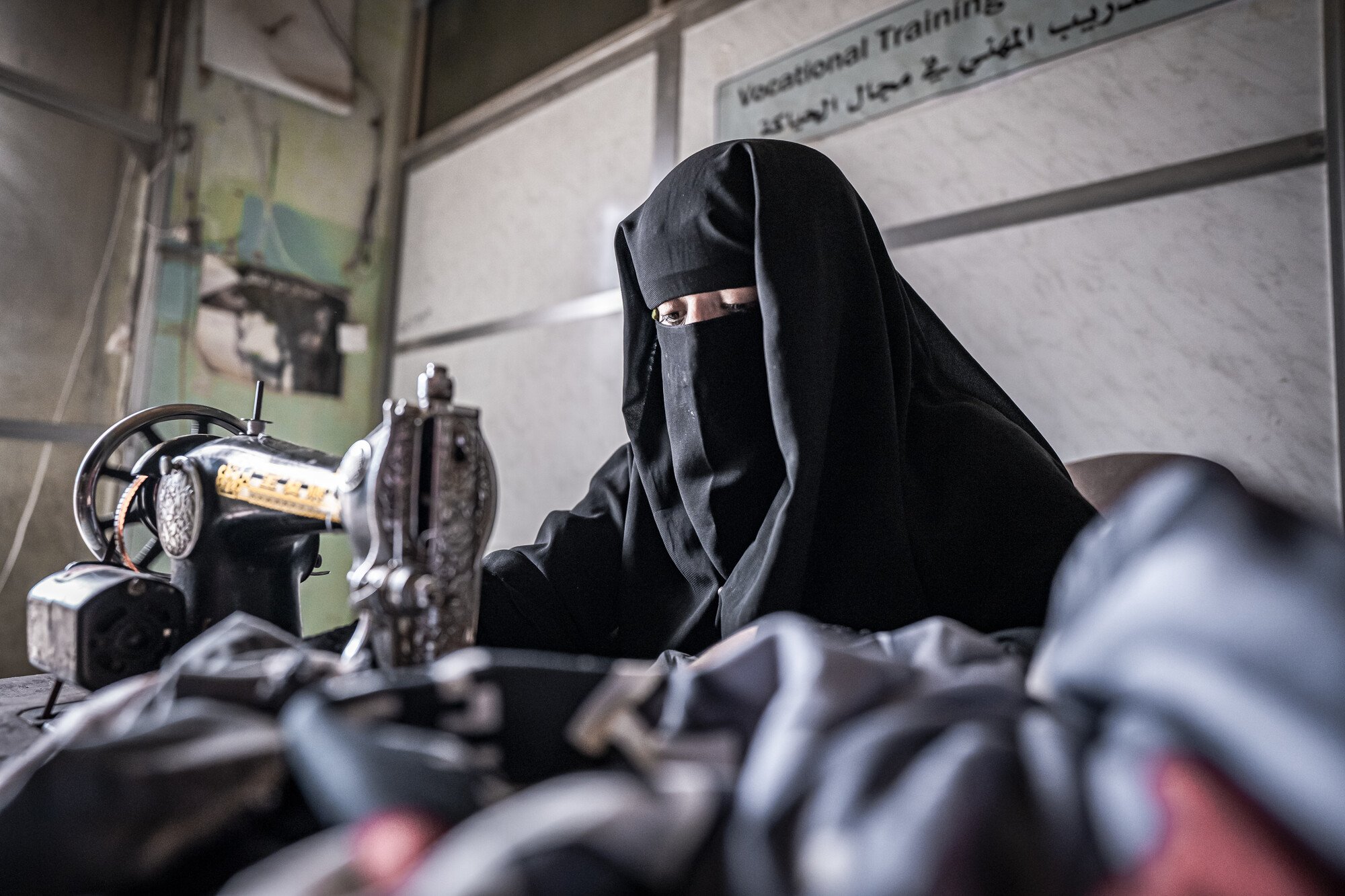Families like Mohammed’s are struggling to cover basic expenses and eat three meals a day.
Mohammed and his family are cooking breakfast, one of two meals they will eat this day. “We have to wait until the evening to eat the second meal, which is dinner,” Mohammed says. “We can’t afford to have three meals every day."
He says they fled their home in Hodeida, Yemen, because they were too close to the fighting in this strategically important coastal region. The family of 15, which includes Mohammed’s grandfather, sons and pregnant daughter-in-law, and grandchildren, found their way to Abyan governorate where they are renting a house.
Mohammed (not his real name) is trying to cover the family’s rent and food and medical expenses by providing rides for people on his motorcycle, but it is hard to make enough money, especially with high fuel prices. “I don’t have any sustainable work,” he says. “My current work income is barely enough to purchase food, and I owe the grocery store a lot of money.”
Tens of millions of people still in need of humanitarian assistance
Mohammed’s family is among the more than 20 million people in Yemen who are in need of humanitarian assistance. They represent two-thirds of the country’s population suffering through eight-years of war in Yemen that has killed more than 19,000 people and forced millions of others to flee their homes. Some families have been displaced multiple times.

Oxfam and other humanitarian assistance groups estimate that 17 million people are experiencing high levels of food insecurity. Seventy five percent of them are women and children, and 2.2 million children under the age of five are now severely malnourished. A depreciating currency, high costs of fuel (for vehicles and cooking gas) and food, and a nearly collapsed economy mean millions of Yemenis are facing catastrophic hunger. The war in Ukraine has also further increased food costs: Yemen imports 90 percent of its food, including 42 percent of its wheat from Ukraine. With so many in Yemen depending on bread as a staple food, lack of availability could push millions toward starvation.
Like many Yemenis struggling to survive, Mohammed and his family are reducing the amount of food they eat and taking on debt to pay for food and health care. They are selling their livestock and other property as well as taking their children out of school. Many young girls are being forced into an early marriage or are begging in the streets. Displaced families struggle to find any income. Seventy seven percent of the displaced people in Yemen are women and children, and they are at the greatest risk of starvation.
How Oxfam is helping families like Mohammed’s in Yemen
Oxfam is helping people in Yemen access clean water and proper sanitation, whether by trucking in water or fixing up wells and repairing/installing toilets and latrines. We provide basic hygiene items like soap to help people keep clean and avoid diseases like cholera.

In many communities, Oxfam provides cash to help families meet their immediate needs. In 2022, Oxfam supported Mohammed and his family along with more than 746 displaced and host families in Abyan governorate with cash payments over six months, which helped many of them cover their basic food needs.
“You don’t know how happy I am because of this support,” Mohammed told Oxfam. He said the money would “go directly to purchase food like rice, and milk for my kids. I will also try to pay part of the debt I owe.”

In other cases, Oxfam provides grants and training for small business owners including hairdressers, tailors, motorcycle mechanics, small-scale farmers, and many others. In a typical year, Oxfam reaches 280,000 people with cash assistance across nine governorates in Yemen. In the 2020-2021 fiscal year, Oxfam disbursed $6,984,985 in cash to people in Yemen.
